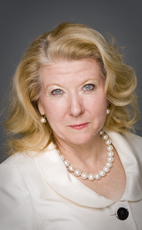Mr. Speaker, I am sure that all colleagues across the House can agree that the threat posed by terrorist regimes taking greater control of Iraq is of great concern. It is of great concern to the well-being of the Iraqi people. It is a concern to the peace and stability in the Middle East. It is a concern to global security.
Canada is not willing to accept a scenario in which the Islamic State of Iraq is allowed to consolidate territory between Iraq and Syria into an autonomous region from which to operate. Many of the reasons for this have been previously mentioned: the ability to transfer weapons and extremists across borders; oppressive control over large populations of innocent civilians; and further degradation of already troubling humanitarian conditions across the region.
Canada and Canadians condemn in the strongest possible terms the barbaric methods of ISIS, such as the murder and rape of innocent women and children, the barbaric murder of American journalists and a British aid worker, and the repugnant killing of innocent civilians in northern Iraq, including the religious minorities.
The humanitarian toll this has taken on the local population is indeed a tragedy. Violence has displaced an estimated 850,000 people in Iraq. This brings the number of Iraqis who have had to flee their homes since the year began to 1.7 million, which represents one of the largest cases of internal displacement in the world. Armed clashes in northern Iraq have driven further displacement, causing the humanitarian context to deteriorate even further. The living conditions for many are desperate. They need water, food and shelter. They also need medical supplies.
In early August nearly 200,000 people made their way to Iraq's Kurdistan region or to disputed border areas. Thousands more reportedly fled across the border into Syria, then back again into the Kurdistan region as well. These people all need help but humanitarian efforts are hampered by the considerable deterioration of security conditions. An unknown number of civilians remain trapped in contested areas with limited access to services. They are living in vulnerable locations, some in schools, others in churches, many in mosques and unfinished buildings.
The influx of internally displaced people is also putting added strain on an already fragile health care structure. Many health facilities are simply overwhelmed, incapable of fully managing a caseload docket that grows larger by the day.
Further, insecurity has interrupted normal supply routes, meaning food is not reaching the hungry. Just as worrisome, the next harvest will be impacted as nearly one-third of Iraq's wheat production comes from areas affected by the current conflict. Food security is becoming a growing concern.
These facts and figures tell quite a story and are enough to prompt any well-meaning country to join the relief effort. Canada recognized early its responsibility to assist and even before the United Nations declared that the situation in Iraq was a level 3 emergency, we had already committed resources to the humanitarian response.
On August 10, the Minister of International Development announced an assistance package of $5 million delivered through four experienced humanitarian partners with long histories of activity in Iraq and robust organizations in the country. Development and Peace, the International Committee of the Red Cross, Save the Children Canada, and Mercy Corps have used our support to address the immediate humanitarian needs of those affected by the civil unrest.
On August 29, the minister announced an additional deployment of relief supplies from Canada's emergency stockpile to be distributed to conflict-affected people in northern Iraq. That stockpile is managed by the Canadian Red Cross. It is composed of relief items designed to meet the basic needs of populations in crisis, including tents, blankets, kitchen sets, hygiene kits, and jerry cans. Recently, in early September, the Minister of Foreign Affairs met with Kurdistan regional government officials to discuss their efforts to address the humanitarian and security situation in the region. At that meeting, he announced an additional $7 million in humanitarian assistance.
Canada cares deeply about the current situation in Iraq and wants a resolution that allows Iraqis to regain at least some semblance of stability. This will not be easy, nor will it be quick. Still, we believe that with the international community's backing, Iraq, and the world, can overcome the ISIS threat, allowing us to shift our focus in Iraq from humanitarian assistance to development work.
In June, Iraq was identified as a development partner country for Canada. The details of our future development assistance program in Iraq are currently being explored and assessed, and the size of our financial envelope is still being determined. However, we do know that our focus in Iraq will be to advance the priorities that we seek to advance in all developing countries. These are increasing food security, securing the future of children and youth, stimulating sustainable economic growth, and supporting governance.
There is hope for Iraq, for its future and the future well-being of its people. With its humanitarian assistance and eventual development programming, Canada intends to play an important role in that progress.
Canada is committed to helping all those affected. We are currently one of the top donors and have provided over $28 million in humanitarian aid since the beginning of 2014. Canadians should rightly be proud of this contribution. Canada will continue to work closely with our allies to determine how we can best continue to support the needs of Iraqi civilians, particularly religious minorities.
Mr. Speaker, I thank you for undertaking to have this debate tonight. It is one that Canadians need to participate in and I am very grateful that we have the opportunity to bring these issues to the floor of the House.

